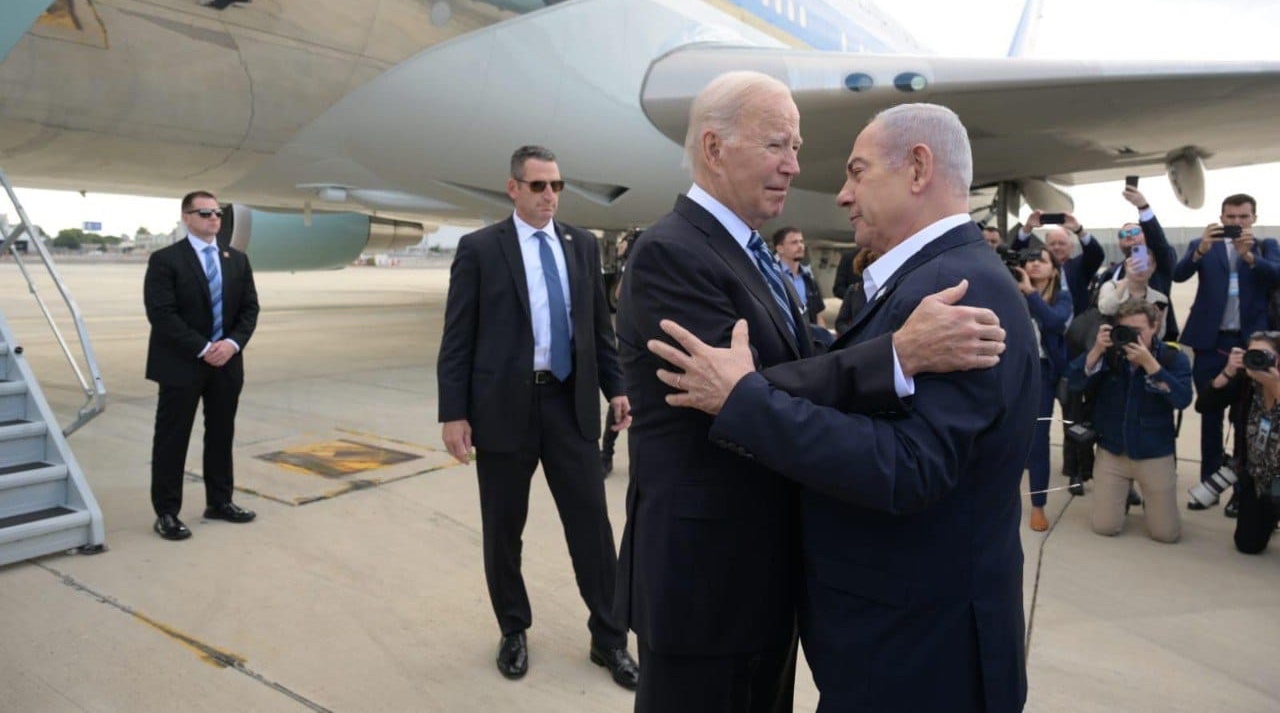(JTA) — More than 24 hours after stymieing a direct Iranian attack, Israel is weighing how to respond as the United States is urging restraint.
That decision will come alongside another pivotal one: how to respond to a truce proposal from Hamas that would halt the war in Gaza and free hostages in exchange for the release of more than a thousand Palestinian security prisoners.
Together, the decisions will help determine whether violence may cool in the region or heat up further. Iran’s attack on Israel — its first direct strike on the country following decades of proxy conflicts and a so-called “shadow war” — ramped up fears of a broader and bloodier conflict in the region that have been bubbling since Hamas’ Oct. 7 attack on Israel.
At the end of Sunday, Israeli authorities had lifted security restrictions and were signaling that life could return to normal, though a military official said, “We are in a long war and there may be changes in the coming days,” according to Israeli Channel 12.
That followed a harrowing few hours on Saturday night when Iran fired hundreds of missiles and attack drones at targets across Israel, with projectiles seen flying over the Dome of the Rock and Temple Mount, a Muslim and Jewish holy site. The attack was in response to the assassination of several Iranian military officials in Damascus, allegedly by Israel.
Israel, together with the United States, Jordan and other allies, thwarted the attack and shot down the vast majority of the incoming fire. No one was killed, and one young girl was seriously injured in southern Israel.
Israel’s three-man war cabinet — Prime Minister Benjamin Netanyahu, Defense Minister Yoav Gallant and former Defense Minister Benny Gantz — met on Sunday though reportedly did not come to an agreement on how to respond to the attack.
The United States is hoping to prevent a wider war. “We will continue to work together to stabilize the situation in the region and avoid further escalation,” President Joe Biden wrote on X, formerly Twitter, on Sunday.
Israel faces another choice as well: how to respond to the Hamas ceasefire proposal. The proposal, reported on Sunday, would see a lengthy pause in fighting in Gaza and the withdrawal of Israeli troops, possibly signaling the end of the war. At the end of a six-week period, Hamas would begin releasing civilian hostages followed by female soldiers and then, at the end, male soliders. In return for each released hostage, Israel would release 30 to 50 Palestinian prisoners who were arrested for security offenses.
The proposal is the latest in on-again-off-again indirect negotiations that have spanned much of the six-month-old war. Hamas has rejected several Israeli ceasefire proposals. Recently, it said it would not be able to identify 40 civilian hostages that it could release under the terms of a potential deal.
The terror group is holding more than 130 hostages in Gaza, as many as 100 of whom are thought to be alive.
JTA has documented Jewish history in real-time for over a century. Keep our journalism strong by joining us in supporting independent, award-winning reporting.






